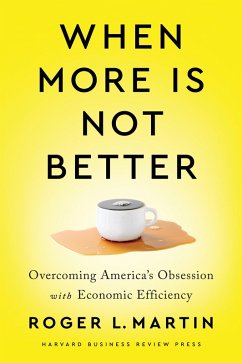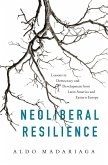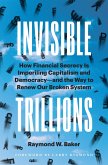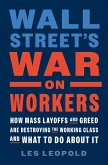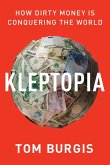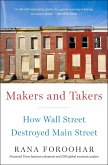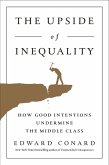American democratic capitalism is in danger. How can we save it?
For its first two hundred years, the American economy exhibited truly impressive performance. The combination of democratically elected governments and a capitalist system worked, with ever-increasing levels of efficiency spurred by division of labor, international trade, and scientific management of companies. By the nation's bicentennial celebration in 1976, the American economy was the envy of the world.
But since then, outcomes have changed dramatically. Growth in the economic prosperity of the average American family has slowed to a crawl, while the wealth of the richest Americans has skyrocketed. This imbalance threatens the American democratic capitalist system and our way of life.
In this bracing yet constructive book, world-renowned business thinker Roger Martin starkly outlines the fundamental problem: We have treated the economy as a machine, pursuing ever-greater efficiency as an inherent good. But efficiency has become too much of a good thing. Our obsession with it has inadvertently shifted the shape of our economy, from a large middle class and smaller numbers of rich and poor (think of a bell-shaped curve) to a greater share of benefits accruing to a thin tail of already-rich Americans (a Pareto distribution).
With lucid analysis and engaging anecdotes, Martin argues that we must stop treating the economy as a perfectible machine and shift toward viewing it as a complex adaptive system in which we seek a fundamental balance of efficiency with resilience. To achieve this, we need to keep in mind the whole while working on the component parts; pursue improvement, not perfection; and relentlessly tweak instead of attempting to find permanent solutions.
Filled with keen economic insight and advice for citizens, executives, policy makers, and educators, When More Is Not Better is the must-read guide for saving democratic capitalism.
Hinweis: Dieser Artikel kann nur an eine deutsche Lieferadresse ausgeliefert werden.
For its first two hundred years, the American economy exhibited truly impressive performance. The combination of democratically elected governments and a capitalist system worked, with ever-increasing levels of efficiency spurred by division of labor, international trade, and scientific management of companies. By the nation's bicentennial celebration in 1976, the American economy was the envy of the world.
But since then, outcomes have changed dramatically. Growth in the economic prosperity of the average American family has slowed to a crawl, while the wealth of the richest Americans has skyrocketed. This imbalance threatens the American democratic capitalist system and our way of life.
In this bracing yet constructive book, world-renowned business thinker Roger Martin starkly outlines the fundamental problem: We have treated the economy as a machine, pursuing ever-greater efficiency as an inherent good. But efficiency has become too much of a good thing. Our obsession with it has inadvertently shifted the shape of our economy, from a large middle class and smaller numbers of rich and poor (think of a bell-shaped curve) to a greater share of benefits accruing to a thin tail of already-rich Americans (a Pareto distribution).
With lucid analysis and engaging anecdotes, Martin argues that we must stop treating the economy as a perfectible machine and shift toward viewing it as a complex adaptive system in which we seek a fundamental balance of efficiency with resilience. To achieve this, we need to keep in mind the whole while working on the component parts; pursue improvement, not perfection; and relentlessly tweak instead of attempting to find permanent solutions.
Filled with keen economic insight and advice for citizens, executives, policy makers, and educators, When More Is Not Better is the must-read guide for saving democratic capitalism.
Dieser Download kann aus rechtlichen Gründen nur mit Rechnungsadresse in A, D ausgeliefert werden.
Hinweis: Dieser Artikel kann nur an eine deutsche Lieferadresse ausgeliefert werden.
Named the 2020 Porchlight Leadership & Strategy Book of the Year
Named one of the "10 Best New Business Books of 2020" by Inc. magazine
Named one of the Globe & Mail's "Best Business Books of 2020"
Named one of the "Best books of 2020: Business" by the Financial Times
"A new book by Professor Roger Martin is always a major event for the evolution of management." Forbes
"This important new book blames a dangerous obsession with efficiency, long the mantra and target of chief executives and finance directors worldwide and a foundation of modern capitalism." Financial Times
"Drawing from hard economic data and in-depth interviews with 'regular Americans,' Martin makes a persuasive case for rethinking perceived wisdom about the economy. Policy makers and business leaders will want to take note." Publisher's Weekly
Advance Praise for When More Is Not Better:
"Roger Martin leverages his deep knowledge of economic systems to precisely diagnose the systemic shortcomings of the modern economy and his practical experience to lay out a pathway to an economy that works for all. A must-read." Paul Polman, cofounder and Chair, IMAGINE; former CEO, Unilever
"Important, if surprising, messages . . . by one of the world's most creative business minds. Roger Martin offers a realist's path toward a more resilient America, with concrete suggestions for business leaders, politicians, educators, and citizens." Dani Rodrik, Ford Foundation Professor of International Political Economy, Harvard University's Kennedy School of Government; author, Straight Talk on Trade
"When More Is Not Better shows what will truly set up our economy for long-term success: a better balance of efficiency and resilience. And it's also the prescription we need as individuals. A must-read for our time!" Arianna Huffington, founder and CEO, Thrive Global
"Roger Martin is my generation's Peter Drucker. He enables us to see beyond the traditional boundaries of business theory to the bigger system at play in our efficiency-obsessed world. And, like Drucker's, his prescriptions are clear, realistic, and practical." Jim Hackett, President and CEO, Ford Motor Company
"The world has never been so . . . well connected, [yet] we remain more divided, with many feeling left behind and deeply frustrated. Martin not only provides a deep and clear understanding of why this is the case but also what can relatively easily be done. . . . I was left with a feeling of optimism about bringing greater resilience to our world." Jorgen Vig Knudstorp, former CEO, LEGO Group; Executive Chairman, LEGO Brand Group
"At the moment when America needs it most, When More Is Not Better brilliantly reveals where democratic capitalism has gone wrong and what new design principles we need to fix it." Tim Brown, Chair, IDEO; author, Change by Design
"When More Is Not Better delivers a trenchant critique of the efficiency-at-any-price economic model. But it also offers something equally important and exceedingly rare: real, practical solutions. . . . A timely, urgent book." Daniel H. Pink, #1 New York Times bestselling author, Drive, When, and A Whole New Mind
Named one of the "10 Best New Business Books of 2020" by Inc. magazine
Named one of the Globe & Mail's "Best Business Books of 2020"
Named one of the "Best books of 2020: Business" by the Financial Times
"A new book by Professor Roger Martin is always a major event for the evolution of management." Forbes
"This important new book blames a dangerous obsession with efficiency, long the mantra and target of chief executives and finance directors worldwide and a foundation of modern capitalism." Financial Times
"Drawing from hard economic data and in-depth interviews with 'regular Americans,' Martin makes a persuasive case for rethinking perceived wisdom about the economy. Policy makers and business leaders will want to take note." Publisher's Weekly
Advance Praise for When More Is Not Better:
"Roger Martin leverages his deep knowledge of economic systems to precisely diagnose the systemic shortcomings of the modern economy and his practical experience to lay out a pathway to an economy that works for all. A must-read." Paul Polman, cofounder and Chair, IMAGINE; former CEO, Unilever
"Important, if surprising, messages . . . by one of the world's most creative business minds. Roger Martin offers a realist's path toward a more resilient America, with concrete suggestions for business leaders, politicians, educators, and citizens." Dani Rodrik, Ford Foundation Professor of International Political Economy, Harvard University's Kennedy School of Government; author, Straight Talk on Trade
"When More Is Not Better shows what will truly set up our economy for long-term success: a better balance of efficiency and resilience. And it's also the prescription we need as individuals. A must-read for our time!" Arianna Huffington, founder and CEO, Thrive Global
"Roger Martin is my generation's Peter Drucker. He enables us to see beyond the traditional boundaries of business theory to the bigger system at play in our efficiency-obsessed world. And, like Drucker's, his prescriptions are clear, realistic, and practical." Jim Hackett, President and CEO, Ford Motor Company
"The world has never been so . . . well connected, [yet] we remain more divided, with many feeling left behind and deeply frustrated. Martin not only provides a deep and clear understanding of why this is the case but also what can relatively easily be done. . . . I was left with a feeling of optimism about bringing greater resilience to our world." Jorgen Vig Knudstorp, former CEO, LEGO Group; Executive Chairman, LEGO Brand Group
"At the moment when America needs it most, When More Is Not Better brilliantly reveals where democratic capitalism has gone wrong and what new design principles we need to fix it." Tim Brown, Chair, IDEO; author, Change by Design
"When More Is Not Better delivers a trenchant critique of the efficiency-at-any-price economic model. But it also offers something equally important and exceedingly rare: real, practical solutions. . . . A timely, urgent book." Daniel H. Pink, #1 New York Times bestselling author, Drive, When, and A Whole New Mind

